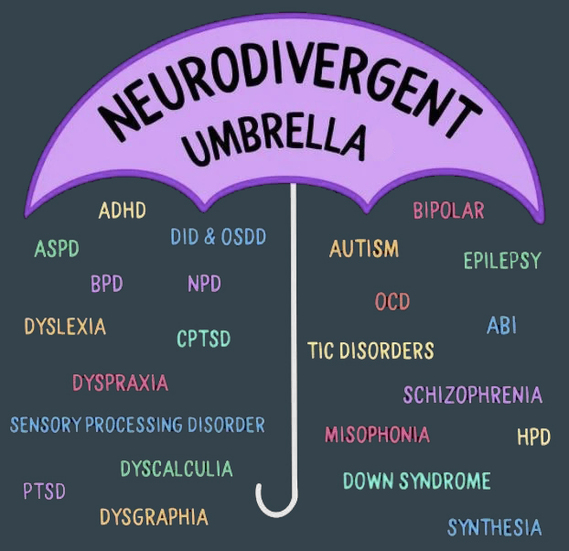Neurodivergence is an umbrella term that encompasses any neurological differences that may manifest in a person. It can include conditions such as autism spectrum disorder (ASD), attention deficit hyperactivity disorder (ADHD), dyslexia, dyspraxia, and more. Signs of neurodivergence can vary from individual to individual, but some common ones include the following:
Living with neurodivergence and cognitive difference can bring many strengths as well as challenges. While creativity, sensitivity, and unique perspectives often shine through, life can also feel overwhelming, especially in a world not always designed with neurodiverse minds in mind.
You may experience difficulties with focus, organisation, time management, emotional regulation, or self-esteem. Many neurodivergent people also carry deep feelings of shame or “not fitting in”, especially if their differences were misunderstood in childhood or adulthood.
Many neurodivergent people describe a lifelong sense of being “different” and misunderstood. Being neurodivergent can feel like moving through the world on a slightly different wavelength — often noticing, feeling, or processing things — sounds, emotions, sensations — more intensely than others. You might find that your mind races with ideas but struggles to focus on one thing, or you can be hyperfocused.
While this can bring creativity, insight, and deep empathy, it can also feel overwhelming, confusing, or lonely at times. Social situations can sometimes feel draining or unpredictable, and the constant effort to “mask” or fit in can be exhausting, and lead to self-doubt or burnout.
